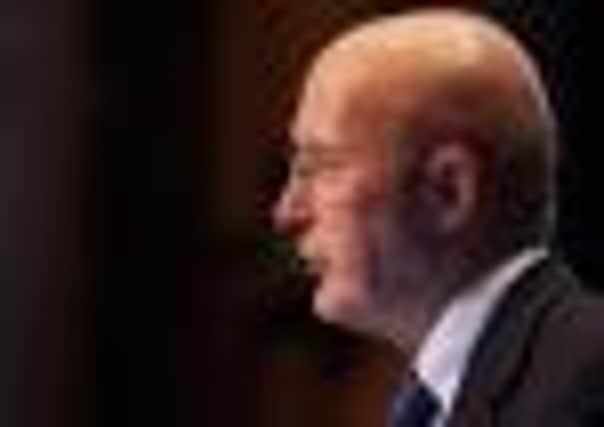Bankers get paid far too much, admits RBS chairman (on £750,000)


Speaking yesterday, Sir Philip Hampton denied that he had personally put RBS chief executive Stephen Hester under pressure to drop his bonus of £930,000 by turning down £1.4 million himself.
He also insisted that despite the political pressure on RBS over bonuses, the bank – 83 per cent of which is state-owned – was in good shape and he was not concerned about losing senior executives, despite speculation that some may be set to go.
Advertisement
Hide AdAdvertisement
Hide AdHowever, Sir Philip admitted that bankers’ pay was out of kilter with the rest of society and needed to be corrected. He said that, relative to other bankers, the rewards offered to Mr Hester – who waived his bonus after coming under extreme public and political pressure – were not high.


Mr Hester, who took over as chief executive after the government bailed out RBS in 2008, was doing a “great job” in turning the bank around and protecting the taxpayers’ 83 per cent investment, the chairman said.
Sir Philip, who received a basic salary of £750,000 in 2010, with no extra performance bonus, confirmed that he had signed off Mr Hester’s proposed package of £963,000 worth of RBS shares – which was 60 per cent of the maximum he could have received under a performance-related scheme – and admitted that the RBS board “under-estimated” the public outrage which it would provoke.
He denied that he had been swayed by government pressure to keep the bonus at less than £1 million and said that it was Mr Hester himself who decided to give up the payout in order to protect his own reputation and that of the bank.
Despite widespread speculation, the RBS board never threatened to resign over the bonus issue, said Sir Philip.
Asked whether he now expected Mr Hester to walk away from his job, he acknowledged that intense scrutiny of his bonus had been “challenging” for the chief executive, but described him as “a tough character” who was “dedicated to turning the business round”.
Sir Philip said: “I think if this bank is fully returned to profitability by an able management team, that is very much in the interests of the British taxpayer. Stephen Hester and his team are, I think, doing a great job.
“I recognise absolutely that some of the pay levels are very high, very difficult for people to understand, but by the standards of this market they are not high.”
Advertisement
Hide AdAdvertisement
Hide AdSir Philip acknowledged public unease about the scale of rewards across the financial sector and he said it was “a no-brainer” to drop his own bonus. “Pay has been high for too long, particularly in the banks, particularly in the investment banks. Shareholders have done pretty badly and employees have done pretty well over the last ten years.
“That needs to be corrected. It isn’t a society or fairness issue, it is a straightforward business issue. Too much of the money is not going to the right place, and the shareholder rewards have not been sufficient.
“I think that is in the process of changing now. IAt some stage, there will be a business correction to bring banker pay properly in line with underlying performance of the business.”